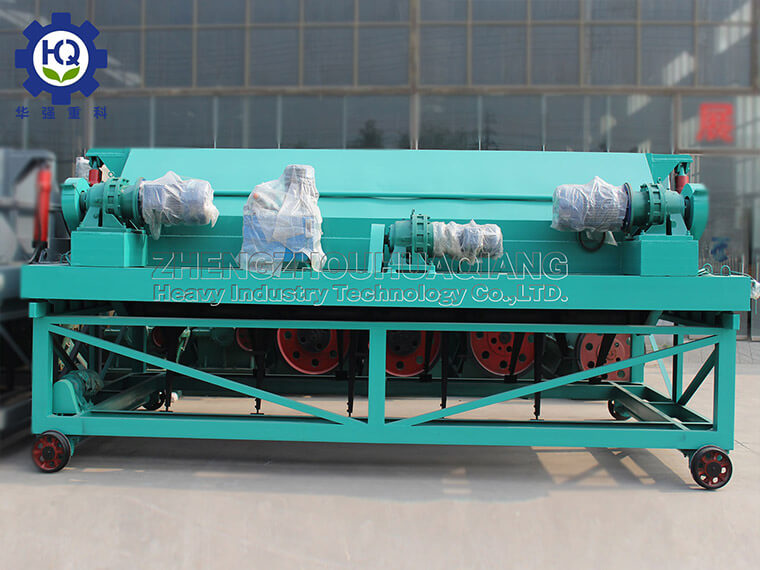The production of organic fertilizer mainly includes two stages: composting and composting, and composting, as the first step of the process, is even more important. If composting is not done well, even with the best materials, high-quality organic fertilizer cannot be produced.
Composting is the process of mixing poultry and livestock manure, straw, agricultural and forestry waste, and adding fermentation agents to make the materials undergo fermentation and maturation.
Poultry and livestock manure, straw and other materials contain harmful bacteria. After high-temperature fermentation, harmful bacteria can be killed and the occurrence of underlying diseases can be reduced. Grass seeds are often found in the feces of poultry and livestock, especially cattle and sheep. If applied directly, grass seeds can lead to overgrowth of weeds. After high-temperature fermentation, it can kill the rapeseed in the fertilizer. When unfermented materials are applied to the soil, they will automatically begin to ferment, and the high temperature generated by fermentation can cause root burning in crops. Completely decomposed materials will not increase in temperature and can be safely applied to the soil.
Why choose flipping equipment for high-yield compost fermentation?
For safety reasons, currently, aerobic fermentation is mainly used for composting. Aerobic fermentation, as the name suggests, requires oxygen and ventilation during the fermentation process. Moreover, during the fermentation process, the temperature of the pile will increase due to the action of high-temperature bacteria. In order to prevent the beneficial bacteria from evaporating at ultra-high temperatures, it is also necessary to periodically flip the materials.
To produce organic fertilizer on a large scale and continuously, at least 10 tons of new materials are added every day. To evenly flip 10 tons of materials, at least 4 workers need to work continuously for 2 hours. Pure manual flipping greatly increases labor costs.
Fortunately, with the development of the mechanical industry, flipping equipment has emerged. The flipping of 10 tons of material allows the machine to dry in just 2 minutes, greatly saving labor costs and time. And if the fermentation site is limited, the height of the compost can be increased to 2 meters, and using flipping equipment can still ensure that the material is fully flipped.